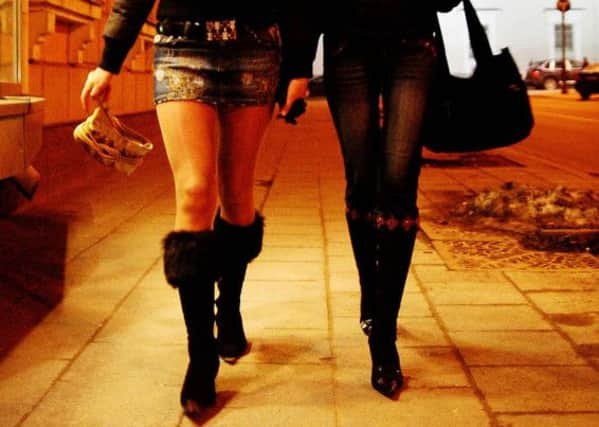Trafficked prostitutes don’t accept they are victims


Some have developed an emotional and economic bond with their traffickers, or may be reluctant to come forward out of fear of intimidation or deportation, a human-trafficking summit at Holyrood heard yesterday.
While some may be earning more money than they have before, many are working for “slave labour wages,” crime agency officials said.
Advertisement
Hide AdAdvertisement
Hide AdPolice Scotland has dealt with 73 potential human trafficking cases since April 2014, but only 17 crimes were identified and just six were reported to the Crown Office, deputy chief constable Iain Livingstone told the summit.
National Crime Agency deputy director of organised crime, Caroline Young, said Romanians trafficked for sex were a particular problem in Scotland.
Lord Advocate Frank Mulholland said the failure of victims to recognise that they were victims was one of the obstacles to prosecution.
Mr Livingstone told the story of a Romanian woman engaged in off-street prostitution in a flat.
“The first-responders attended and quite clearly she was being facilitated through a trafficker, a man who was making the arrangements to support that individual,” he said.
“The female herself was actually, in her eyes, living a relatively – relative to where she had been – decent life.
“She had money, she didn’t wish necessarily to have legal support, she didn’t define herself as a victim – but she was a victim, and was treated as such.”
Police also found trafficked Polish males working in the building industry.
Advertisement
Hide AdAdvertisement
Hide Ad“Again they had money, more money than they had previously, and they were getting fed but they were getting exploited,” he said.
“They didn’t see themselves as victims, they didn’t necessarily particularly welcome an intervention, but they were victims of organised crime.
“Sitting behind that was international organised crime, and we are taking that forward and getting support by Europol.”
A cannabis farm was tended by illegal immigrants who also did not see themselves as victims, he added.
“We need to make sure we get to the organised crime that sits behind that, but not re-victimise the individuals who are subject to that,” Mr Livingstone said.
Speaking ahead of the summit, Mr Mulholland said: “There’s a bond which has built up between the victim and the trafficker, an emotional and economic bond.”